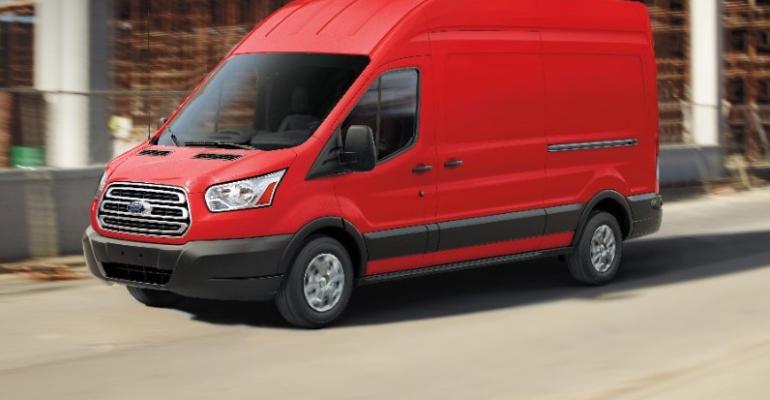Ford sold 187,359 vehicles in the U.S. in July, down 2.3% from July 2017, but one fewer selling day (24 vs. 25 in prior-year) leaves the monthly tally flat for the Dearborn, MI, automaker, according to Wards Intelligence data.
Several indicators were positive for the month of July for Ford over prior-year: Fleet sales were up 25.7%; transaction prices gained $1,200 (compared with $700 gain for industry); commercial- vehicle sales were up 25%; van sales grew 60.8% to 16,921 units; and combined pickup, SUV and van sales totaled 153,402 units, up 4.8%.
But Ford’s retail sales were down 10.4% in July, daily car sales were off 24.7% and Lincoln continued its struggles, with daily sales down 7.3% to 7,898. Deliveries of the freshest car in Lincoln’s lineup, the Continental sedan, plummeted 37.7% to 573 units in July based on DSR.
Media reports have suggested the Continental will be discontinued, but Ford sales analyst Erich Merkle says the luxury sedan “remains an important part of the Lincoln lineup” and is doing well in China, with sales up 34% through May to 5,456 units.
Lincoln’s best seller in July was the MKC small utility vehicle, notching 2,300 deliveries (up 12.5%). The all-new Navigator fullsize SUV continues gaining momentum in showrooms, with 1,191 sales in July, up 69.5%, based on DSR.
Mark LaNeve, Ford vice president-U.S. Marketing, Sales and Service, says the July 4 holiday, which traditionally drives sales growth, split showroom traffic this year because it fell on a Wednesday.
Ford was hoping more customers would complete purchases in the days immediately after the holiday, but instead LaNeve says Saturday, June 30, turned out to be a big sales day for Ford, which negatively impacted the July tally.
Looking forward, year-over-year comparisons for the next three months “will be impacted by Hurricane Harvey last year, which as you remember hurt August sales but really helped September with replacement demand and even helped October,” LaNeve says.
For the Ford brand, trucks and utility vehicles continued doing well while cars suffered.
Daily deliveries of F-Series trucks grew 4.6% to 65,565 vehicles, and Transit cargo-van volume nearly tripled to 10,794 units in July. Ford trucks and utility vehicles losing daily volume in July were the Edge (-5.2%), Escape (-22.5%) and Transit Connect (-28.1%).
Showing growth in July were the Explorer (+10.2% to 22,782 units), Flex (+25.7% to 1,858) and the all-new Brazil-sourced EcoSport compact CUV (5,354 units).
But the car side was less encouraging for Ford. The Focus and Fiesta are being discontinued in the U.S., so dealers will be clearing out those models in the coming months. In July, Fiesta daily deliveries were up 14.2% to 3,928, while Focus sales plummeted 43.2% to 8,993 units.
Ford stopped producing the Focus at its Wayne, MI, assembly plant in May and will end production of the Fiesta in Mexico next year. Ford also produces the Fusion sedan in Mexico, but Wards Intelligence forecasts Fusion production will end in 2020. In July, Fusion daily sales were down 18.8% to 10,822 units.
Based on July results, LaNeve says Ford tracks the overall industry producing a seasonally adjusted annual rate of 16.3 million vehicles, including medium and heavy trucks.
“And we believe the industry has remained very disciplined on incentive spending,” he says. “It was actually down $230 compared to a year ago.”
Bryan Bezold, Ford senior Americas economist, says the U.S. economy continues growing at a robust pace: Exports and personal consumption are up, and unemployment claims remain low.
He cites the University of Michigan’s Consumer Sentiment Index, which fell 0.3 points from June to July but remains at a historically high level.
The U-M survey finds respondents concerned about rising interest rates and high vehicle prices, while AAA reports gas prices are up 23% from year-ago.
“Despite that substantial year-over-year increase, consumers don’t appear concerned,” Bezold says, citing the U-M survey. “The number of respondents who think it’s a bad time to buy a new car because of high gas prices remains very low.”





